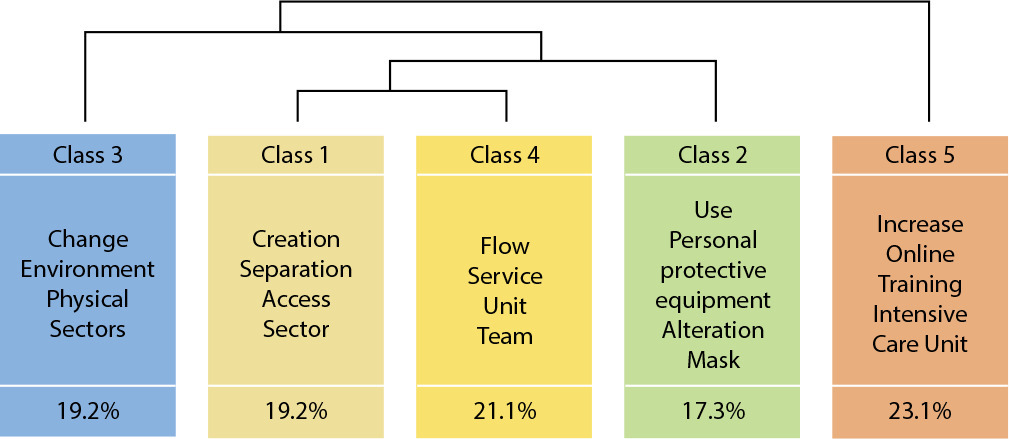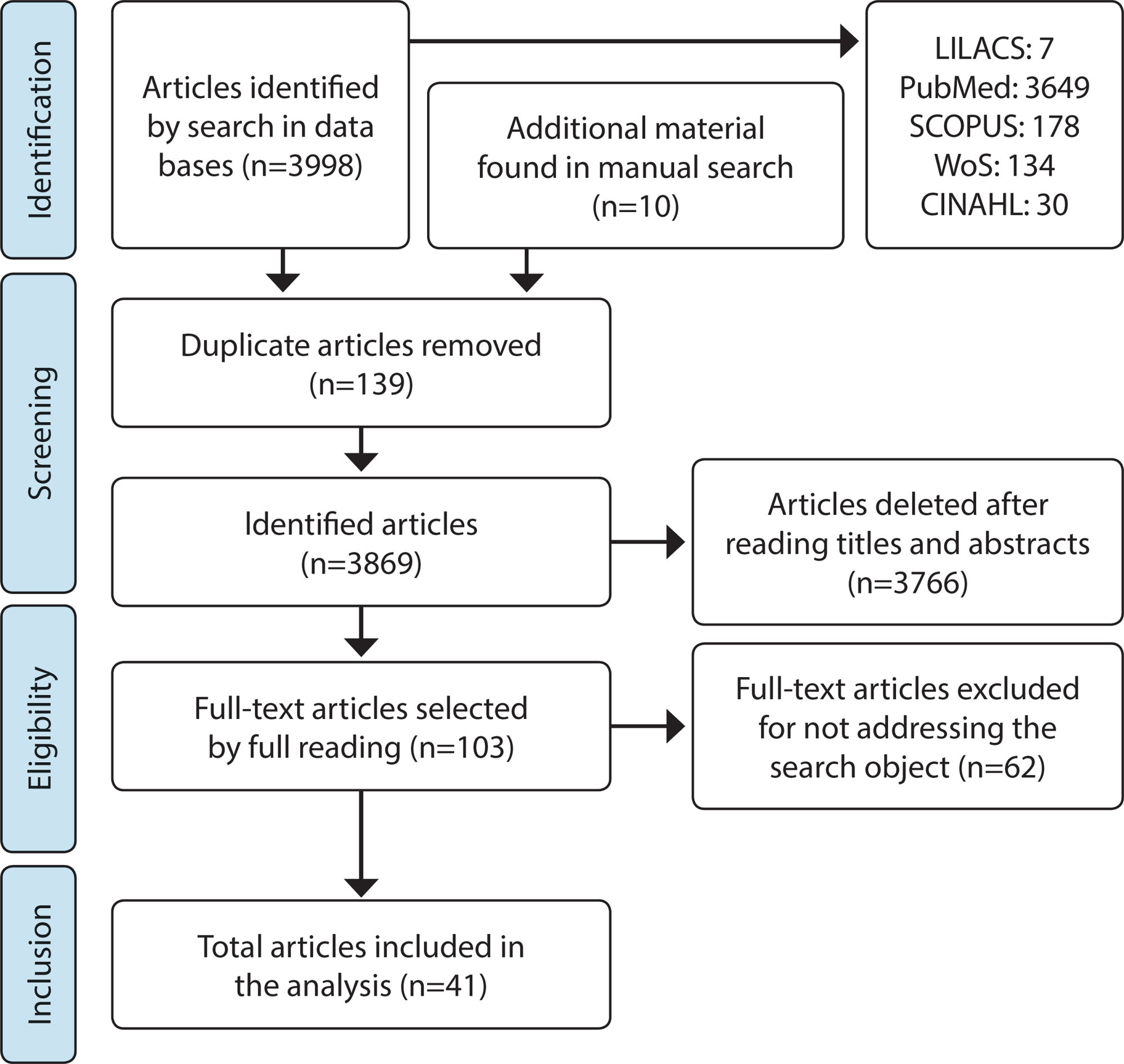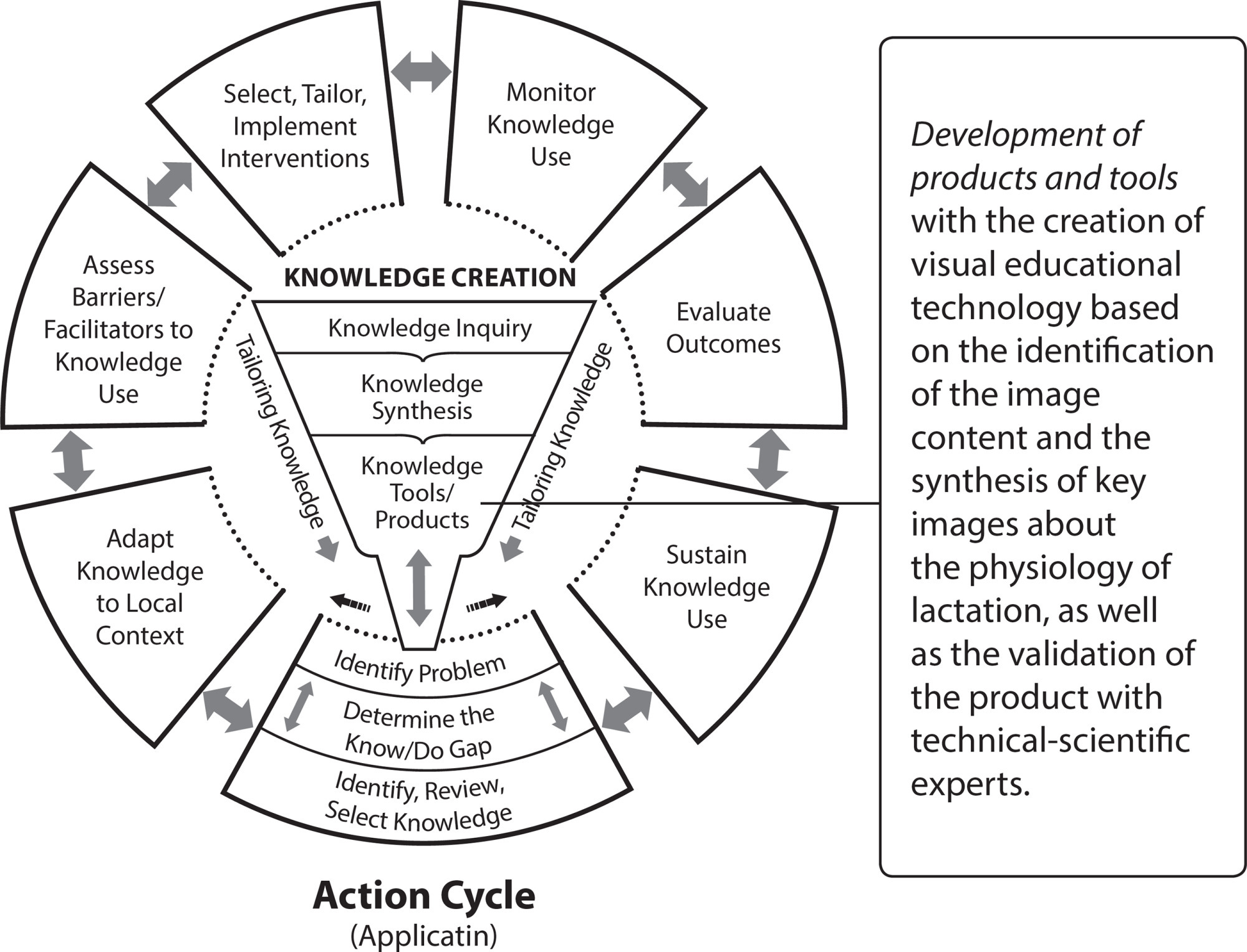-
REFLECTION01-01-2017
Transcendence, historicity and temporality of being elderly: nursing reflection-using Heidegger
Revista Brasileira de Enfermagem. 2017;70(4):891-895
Abstract
REFLECTIONTranscendence, historicity and temporality of being elderly: nursing reflection-using Heidegger
Revista Brasileira de Enfermagem. 2017;70(4):891-895
DOI 10.1590/0034-7167-2016-0275
Views0See moreABSTRACT
The objective is to reflect on historicity and temporality as paths for the transcendence of being elderly, based on the phenomenological concepts of Martin Heiddeger. A review of the concepts of transcendence, historicity and temporality was carried out in the work of Martín Heidegger, integrating them in the perspective of nursing for the elderly. The transcendence of the elderly adult is feasible by accessing the temporality of self in the path of its historicity to arrive at the understanding of itself that he has achieved: transcending, which is but a process of the Being itself. Being is time in itself existing in the world, existence given by the encounter of the past (to have been), present and future (becoming), the same encounter that determines the historicity of the Being. The encounter has been consummated and the Being is transcendence, with the understanding of the Being itself as a supreme point.
-
01-01-2017
Trascendencia, historicidad y temporalidad del ser adulto mayor: reflexión enfermera en Heidegger
Revista Brasileira de Enfermagem. 2017;70(4):891-895
Abstract
Trascendencia, historicidad y temporalidad del ser adulto mayor: reflexión enfermera en Heidegger
Revista Brasileira de Enfermagem. 2017;70(4):891-895
DOI 10.1590/0034-7167-2016-0275
Views0See moreRESUMEN
El objetivo es reflexionar en la historicidad y temporalidad como caminos para la trascendencia del ser adulto mayor, basado en los conceptos fenomenológicos de Martín Heiddeger. Se llevó a cabo una revisión de los conceptos de trascendencia, historicidad y temporalidad en la obra de Martín Heidegger, realizando su integración en la perspectiva de enfermería al adulto mayor. La trascendencia del ser adulto mayor es factible accediendo a la temporalidad del mismo en el camino de su historicidad para llegar a la comprensión de sí a la que ha llegado: trascendiendo, que no es sino un proceso del mismo ser. El ser es el tiempo en sí mismo existiendo en el mundo, existencia dada por el encuentro del pasado (haber sido), presente y futuro (devenir), mismo encuentro que determina la historicidad del ser. El encuentro se ha consumado y el ser es trascendencia, como punto supremo la comprensión del ser mismo.
-
EXPERIENCE REPORT01-01-2017
Scenario approximation in a phenomenological study in Mexico: experience report
Revista Brasileira de Enfermagem. 2017;70(4):885-890
Abstract
EXPERIENCE REPORTScenario approximation in a phenomenological study in Mexico: experience report
Revista Brasileira de Enfermagem. 2017;70(4):885-890
DOI 10.1590/0034-7167-2016-0601
Views0See moreABSTRACT
Objective:
To report our experience using scenario approximation in a phenomenological study of nursing in Mexico.
Method:
Experience report on scenario approximation to coexist with elderly in order to select the participants of a phenomenological study.
Results:
During a four-month period in 2016, visits were carried out two groups of elderly individuals where several activities were carried out. Coexistence with the elderly throughout accompaniment in the groups’ activities together with joint dialogue allowed selection of those who corresponded to the characteristics of the study objective.
Conclusion:
Scenario approximation is necessary in phenomenological studies, not only for creating empathy among the participants but also for the researchers to immerse themselves in the phenomenon under study, as shown by the first approaches of the researcher.
-
01-01-2017
Acercamiento al escenario de estudio fenomenológico en México: relato de experiencia
Revista Brasileira de Enfermagem. 2017;70(4):885-890
Abstract
Acercamiento al escenario de estudio fenomenológico en México: relato de experiencia
Revista Brasileira de Enfermagem. 2017;70(4):885-890
DOI 10.1590/0034-7167-2016-0601
Views0See moreRESUMEN
Objetivo:
Relatar la experiencia del acercamiento al escenario de un estudio fenomenológico en enfermería en México.
Método:
Relato de experiencia sobre el acercamiento al escenario de estudio para convivir con adultos mayores con la finalidad de seleccionar a los participantes de un estudio fenomenológico.
Resultados:
Se llevaron a cabo visitas durante el año 2016, en un periodo de cuatro meses a dos grupos de adultos mayores en donde se realizaron diversas actividades. La convivencia con los adultos mayores a través del acompañamiento en las actividades que realizaban en los grupos y el diálogo conjunto permitió seleccionar a aquellos que respondían a las características del objeto de estudio.
Conclusión:
Es necesaria la aproximación al escenario de estudios fenomenológicos, no sólo con la finalidad de ganar empatía de los participantes sino para sumergirse en el fenómeno de estudio, mismo que se va mostrando desde los primeros acercamientos del investigador.
-
REVIEW01-01-2017
Knowledge produced on the health of low-income older women: an integrative review
Revista Brasileira de Enfermagem. 2017;70(4):875-884
Abstract
REVIEWKnowledge produced on the health of low-income older women: an integrative review
Revista Brasileira de Enfermagem. 2017;70(4):875-884
DOI 10.1590/0034-7167-2017-0024
Views0See moreABSTRACT
Objective:
to identify the knowledge produced on the health of low-income older women.
Method:
an integrative review was conducted in February 2016 on the SCOPUS, CINAHL, MEDLINE, LILACS, EMBASE, WEB OF SCIENCE databases, and in the SciELO journals directory. After the application of inclusion and exclusion criteria, 24 articles were selected.
Results:
the knowledge produced comprises two main themes: “health in face of economic adversities” and “reciprocity in social support between low-income older women and their social network”.
Final considerations:
health professionals, especially nurses, should be attentive to aspects related to social determinants and the health of low-income older women, highlighting the fact that they are not always the recipients of care.

-
REVIEW01-01-2017
Functional health literacy and adherence to the medication in older adults: integrative review
Revista Brasileira de Enfermagem. 2017;70(4):868-874
Abstract
REVIEWFunctional health literacy and adherence to the medication in older adults: integrative review
Revista Brasileira de Enfermagem. 2017;70(4):868-874
DOI 10.1590/0034-7167-2016-0625
Views1See moreABSTRACT
Objective:
to characterize the national and international scientific production on the relationship of Functional Health Literacy and the adherence to the medication in older adults.
Method:
integrative review of literature, searching the following online databases: Scientific Electronic Library Online (SCIELO); Latin American and Caribbean Health Sciences Literature (LILACS); Medical Literature Analysis and Retrieval System Online (MEDLINE); and Cumulative Index to Nursing & Allied Health Literature (CINAHL), in June 2016. We selected 7 articles that obeyed the inclusion criteria.
Results:
all articles are from the USA. The inappropriate Functional Health Literacy affects the non-adherence to medication; however, there are several strategies and interventions that can be practiced to change this relationship.
Conclusion:
nursing needs to explorefurther this theme, since it can exert a differentiated care for adherence to medication in older adults, considering the literacy.
-
RESEARCH01-01-2017
Evaluation of the safety of hospitalized older adults as for the risk of falls
Revista Brasileira de Enfermagem. 2017;70(4):860-867
Abstract
RESEARCHEvaluation of the safety of hospitalized older adults as for the risk of falls
Revista Brasileira de Enfermagem. 2017;70(4):860-867
DOI 10.1590/0034-7167-2017-0098
Views0See moreABSTRACT
Objective:
To evaluate the safety of hospitalized older adults as for the risk of falls according to the parameters of the Morse Fall Scale.
Method:
Epidemiological, cross-sectional, prospective and descriptive study with n=75.
Results:
Average age of 71.3 years (SD±8.2); 58.7% male; 44% with low educational level; 38.7% hospitalized for cardiovascular diseases; average hospitalization of 10 days (SD±9.38); 78.7% with comorbidities; 61.3% with the calf circumference ≥ 31 cm; 62.7% were former smokers for more than 10 years; 65% did not drink alcohol; 100% did not have identification bracelet; 22.7% had similar names in the infirmary; 48% took up to five medicines; and 93.3% received some invasive procedure, especially the vessel puncture (65.3%). There was a high risk of falls in 52% of older adults.
Conclusion:
The results pointed to imminent risk of breach of patient safety, emphasizing the need for implementation of protocols and predictive scales such as the Morse scale.

-
RESEARCH01-01-2017
Quality of life of elderly people with chronic kidney disease in conservative treatment
Revista Brasileira de Enfermagem. 2017;70(4):851-859
Abstract
RESEARCHQuality of life of elderly people with chronic kidney disease in conservative treatment
Revista Brasileira de Enfermagem. 2017;70(4):851-859
DOI 10.1590/0034-7167-2017-0103
Views0See moreABSTRACT
Objective:
To describe the quality of life (QOL) of elderly people with Chronic Kidney Disease (CKD) in conservative treatment, correlating it with sociodemographic and health-related aspects.
Method:
This is a quantitative, cross-sectional, and descriptive study that used: a previously validated instrument for data collection; the WHOQOL-BREF and WHOQOL-OLD QOL scales; and the Mini-Mental State Examination.
Results:
Thirty-five elderly people (54.30% females), with mean age of 68.26 years, took part in the study. They reported, on average, 3.70 comorbidities and 5.60 complications related to CKD. Regarding QOL, the “psychological” domain (54.40±16.29) and the “death and dying” facet (37.32±23.79) were considered the most damaged ones; the most strengthened were “social relationships” (70.36±18.32) and “intimacy” (66.61±16.80). A positive correlation was verified between comorbidities and complications (p = 0.015), and an inverse correlation between the number of complications and QOL (p = 0.004).
Conclusion:
These results, if considered during the care planning, may help improving the quality of the care provided for elderly people with CKD.
-
ORIGINAL ARTICLE11-29-2022
Changes implemented in the work environment of nurses in the COVID-19 pandemic
Revista Brasileira de Enfermagem. 2022;75:e20201381
Abstract
ORIGINAL ARTICLEChanges implemented in the work environment of nurses in the COVID-19 pandemic
Revista Brasileira de Enfermagem. 2022;75:e20201381
DOI 10.1590/0034-7167-2020-1381
Views0See moreABSTRACT
Objective:
to describe the changes implemented in the work environment of nurses in university hospitals considering the COVID-19 pandemic.
Methods:
this qualitative and descriptive research was developed from an online survey with 75 nurses from three Brazilian university hospitals. Data processing occurred through textual analysis with the aid of software IRAMUTEQ.
Results:
five semantic classes were obtained: Organization of units for exclusive care of patients with COVID-19; Adaptations in the use of personal protective equipment; Physical structure adaptation; Care flow institution; Increased number of beds and training courses. Final considerations: the results show the effort of healthcare and nursing professionals/managers in the development of structural adaptations and reorganizations of care processes, in the hospital context, to respond with quality and efficiency to the demands arising from the COVID-19 pandemic.

-
ORIGINAL ARTICLE10-21-2019
Permanent education for good practices in the prevention of pressure injury: almost-experiment
Revista Brasileira de Enfermagem. 2019;72(6):1646-1652
Abstract
ORIGINAL ARTICLEPermanent education for good practices in the prevention of pressure injury: almost-experiment
Revista Brasileira de Enfermagem. 2019;72(6):1646-1652
DOI 10.1590/0034-7167-2018-0778
Views0See moreABSTRACT
Objective:
To verify the effectiveness of the educational intervention through the evaluation of nurses’ knowledge about prevention of pressure injury.
Method:
A quasi-experimental study with a single group, carried out with 95 nurses from a teaching hospital in the interior of Minas Gerais, in August and September 2017. As a teaching strategy, the active methodology and hybrid teaching were used, based on the reference of the Method of the Arch of Charles Maguerez. Data were collected from a validated instrument, called the Pieper Knowledge Test, and analyzed by descriptive statistics and Student’s t-test with significance level of p <0.001.
Results:
The mean number of correct answers obtained by the nurses was 78.8% in the pre-test and 88.8% in the post-test, and the difference was statistically significant (p <0.001).
Conclusion:
The educational intervention developed was effective, since it contributed to the improvement of nurses’ knowledge.

-
ORIGINAL ARTICLE12-05-2019
Nurse care for the hospitalized elderly’s spiritual dimension
Revista Brasileira de Enfermagem. 2019;72:236-242
Abstract
ORIGINAL ARTICLENurse care for the hospitalized elderly’s spiritual dimension
Revista Brasileira de Enfermagem. 2019;72:236-242
DOI 10.1590/0034-7167-2018-0685
Views0See moreABSTRACT
Objective:
to analyze the nurse care for the spiritual hospitalized elderly’s dimension.
Method:
a qualitative study, based on Jean Watson’s Theory of Human Caring. The study included 17 nurses working in a geriatric center in Salvador City, Bahia State, Brazil. The collection of testimonies occurred between January and April of 2018, through an interview.
Results:
spiritual care were dialogue, encouragement and respect for religious activities, embracement, empathy. One of the obstacles to providing this care was the lack of preparation in accessing the elderly’s spiritual dimension.
Final considerations:
spirituality is a dimension of human and holistic nursing care. Caring for the spirit contributes to foster transpersonal care. The difficulty may be in the lack of nurses’ preparation. It is necessary that they cultivate and live their own spirituality, transmitting the understanding in each care relationship.
-
EXPERIENCE REPORT04-03-2020
Use of webQDA software on qualitative nursing research: an experience report
Revista Brasileira de Enfermagem. 2020;73(3):e20180411
Abstract
EXPERIENCE REPORTUse of webQDA software on qualitative nursing research: an experience report
Revista Brasileira de Enfermagem. 2020;73(3):e20180411
DOI 10.1590/0034-7167-2018-0411
Views0See moreABSTRACT
Objectives:
to report the user experience of the webQDA software in the support of qualitative data analysis about health literacy of older adults.
Methods:
quasi-experimental research developed from January 2014 to January 2015, with 118 older adults, all of whom were interviewed to assess the level of health literacy. Interviews were carried out before and after four educational interventions, according to Freire’s method named Culture Circle. The interviews were transcribed and entered in the software, which highlighted the analytical categories.
Results:
the systems of sources, interpretative encoding and questioning of the data available in the software allowed the construction of three categories for the literacy levels and four categories for their dimensions.
Final considerations:
We concluded that the webQDA software enables the structured encoding of qualitative materials, ensuring faster and effective management of data with systematization and analytical transparency.

-
03-03-2021
Concept analysis of Perioperative Thirst for the development of a new nursing diagnosis
Revista Brasileira de Enfermagem. 2021;74(1):e20200065
Abstract
Concept analysis of Perioperative Thirst for the development of a new nursing diagnosis
Revista Brasileira de Enfermagem. 2021;74(1):e20200065
DOI 10.1590/0034-7167-2020-0065
Views1See moreABSTRACT
Objectives:
to analyze the perioperative thirst concept for the development of a new diagnostic structure according to NANDA International.
Methods:
a concept analysis study based on the framework proposed by Walker and Avant, instrumentalized through an integrative literature review based on SCOPUS, CINAHL, PUBMED, LILACS, and WOS. The elaboration of the diagnostic structure followed NANDA International guidelines.
Results:
41 studies were analyzed revealing that perioperative thirst is prevalent and intense, having visceral and behavioral attributes as the core of the concept. Antecedents indicate that surgical patients are vulnerable to thirst; and consequents 16 signs and symptoms were organized and model cases were developed. A diagnostic structure has been developed for perioperative thirst.
Final Considerations:
concept analysis allowed language standardization that describes thirsty patients, helping the identification, planning of actions and communication of perioperative nursing care.

-
REFLECTION05-11-2022
Nursing Process in the Brazilian context: reflection on its concept and legislation
Revista Brasileira de Enfermagem. 2022;75(6):e20210898
Abstract
REFLECTIONNursing Process in the Brazilian context: reflection on its concept and legislation
Revista Brasileira de Enfermagem. 2022;75(6):e20210898
DOI 10.1590/0034-7167-2021-0898
Views0See moreABSTRACT
Objectives:
to reflect on the global understanding of the Nursing Process concept, with emphasis on the Brazilian context.
Methods:
a reflection article, aligned with the vision and expertise of researchers who are members of the Nursing Process Research Network.
Results:
the reflection is presented in two main topics: The evolution of Systematization of Nursing Care X Nursing Process concepts and its consonance with national and international practices, and Brazilian legislation; The Nursing Process concept realignment in Brazilian legislation in line with current care, teaching and research practices. Final Considerations: the reflections were oriented to the Nursing Process’ conceptual, normative and legal issues, including elements of its historical evolution, and, with that, pointed to the need to modify the Brazilian regulation on the Nursing Process.
-
ORIGINAL ARTICLE09-07-2020
Creation and validation of a visual educational technology content for lactation physiology learning
Revista Brasileira de Enfermagem. 2020;73(6):e20190564
Abstract
ORIGINAL ARTICLECreation and validation of a visual educational technology content for lactation physiology learning
Revista Brasileira de Enfermagem. 2020;73(6):e20190564
DOI 10.1590/0034-7167-2019-0564
Views0See moreABSTRACT
Objective:
to create and validate a visual educational technology content for lactation physiology learning.
Method:
a methodological study that contemplated the stages of content creation and validation guided by the conceptual model of Knowledge Translation into action. The creation took place in partnership with the educational technology center of the project’s home institution. The validation was attended by 27 judges with experience in the obstetric, neonatal, pediatric or maternal and child areas and in the theme of breastfeeding.
Results:
an educational technology covered animation and video techniques to locate, respectively, elements of lactation physiology and the population involved. An Overall Content Validity Index of 0.84 was obtained.
Conclusion:
the visual educational technology for lactation physiology learning has been validated in content as a tool to introduce the theme and mediate health education actions that can have a positive impact on breastfeeding.

-
ORIGINAL ARTICLE08-20-2021
Risk of suicide among nursing students
Revista Brasileira de Enfermagem. 2021;74(6):e20200867
Abstract
ORIGINAL ARTICLERisk of suicide among nursing students
Revista Brasileira de Enfermagem. 2021;74(6):e20200867
DOI 10.1590/0034-7167-2020-0867
Views0See moreABSTRACT
Objectives:
to identify the risk and degree of risk of suicide in nursing students of a public institution in the countryside of Pernambuco, Brazil.
Methods:
this was a cross-sectional, quantitative research conducted with 150 students. For data collection, a sociodemographic questionnaire and the instrument, M.I.N.I. – Brazilian version 5.0.0 – Module C – Risk of suicide were used. Statistical analyses were performed with IBM(® )SPSS(®), version 23.
Results:
53.3% of nursing students had a risk of suicide, of which 20.7% had a high risk. Moreover, 22.67% reported previous suicide attempt. It is noteworthy that students without a partner have a higher risk of suicide (56.8%) than those with a partner (29.4%).
Conclusions:
it is perceived the need to develop programs that identify students at risk of suicide in higher education institutions, in order to raise awareness of the problem and implement policies to promote mental health in the academia.
Search
Search in:
Nuvem de Tags
Adolescente (85) Atenção Primária à Saúde (239) COVID-19 (91) Criança (91) Cuidados de Enfermagem (269) Educação em Enfermagem (151) Educação em Saúde (139) Enfermagem (930) Enfermagem Pediátrica (86) Estudantes de Enfermagem (77) Estudos de Validação (131) Família (87) Idoso (208) Promoção da Saúde (99) Qualidade de Vida (104) Saúde do Trabalhador (86) Saúde Mental (145) Saúde Pública (82) Segurança do Paciente (150) Tecnologia Educacional (100)



